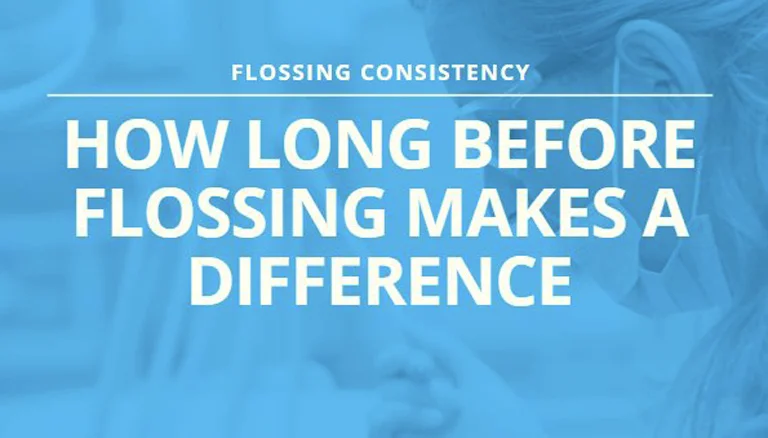The power of flossing is closely tied to its regularity. Daily flossing is the most effective way to maintain optimal oral health. As you hold on to this habit, you will realize that you are not only preventing dental issues but also investing in a confident and healthy smile for years to come.
Why Consistency in Flossing?
If you floss consistently, it will not let plaque buildup between teeth and along the gum line. Plaque can lead to tooth decay, cavities, and gum disease. Plaque is a soft and sticky film of bacteria that forms on teeth. Regular flossing disrupts it and prevents its negative effects on oral health.
For maintaining healthy gums regular Flossing is essential. It removes debris and bacteria between teeth. Flossing prevent gingivitis, the early stage of gum disease.
Flossing removes the bacteria responsible for bad breath. By regularly cleaning between your teeth by flossing, you can enjoy fresher breath and you will have confident interactions daily.
Consistent flossing boosts the effectiveness of professional dental cleanings. When you visit your dentist for regular check-ups or cleaning, regular flossing and brushing will maintain the state of professional cleanings.
Flossing Timeline: How Long Before Flossing Makes a Difference
If you floss every day for two weeks, you will notice a difference between flossing and not flossing, even after missing just one day. In the first week of daily flossing, you will notice less plaque buildup than before. Flossing efficiently eliminates the pasty film of bacteria that accumulates between your teeth and along the gum line.
As you will go along developing the habit of daily flossing, your mouth will likely feel cleaner and your gums will be less prone to bleeding. By the third to fourth week, you will have fresher breath because flossing eliminates odor-causing bacteria. Your gums adapted to the routine, becomes less inflamed and more resilient.
Long-Term Benefits
With continued daily flossing, the long-term benefits will become more apparent. Plaque is consistently kept at bay and lessened risk of cavities and supporting overall gum health. Long-term flossing is a powerful defense against gum disease.
Regular flossing will prevent the development of gingivitis and more advanced stages of periodontal disease. Flossing complements brushing by reaching areas that a toothbrush cannot reach. Healthy gums provide a sturdy foundation for your teeth reducing the risk of tooth loss.
Long-term flossing contributes to the overall health of your gum tissues. Healthy gums are less prone to bleeding, inflammation and sensitivity. By fostering gum health, flossing supports a robust oral environment and minimizes the risk of developing more serious dental issues.
Flossing’s Impact: How Long Before Flossing Makes a Difference
In the first couple of weeks of consistent flossing, you lay the foundation for improved oral health. Your mouth will likely feel cleaner as you remove debris from between your teeth and along the gumline by flossing daily.
Dental floss is a thin, waxed thread used to clean between the teeth which remove plaque and cause discoloration. By flossing daily you will notice that you have a naturally brighter smile which would uplift your overall appearance as well.
Oral Hygiene Benefits
- Reduced Plaque Buildup
- Gum Health Improvement
- Prevention of Cavities
- Fresher Breath
- Gum Disease Prevention
- Cavity Prevention
Wrap up
The timeline for how long before flossing makes a difference varies but positive changes are normally noticeable within the first few weeks to months. By devloping the habit of daily flossing and staying committed to your oral health, you are paving the way for a lifetime of healthier and happier smiles.
The journey towards better oral health is a gradual process and by prioritizing consistency and maintaining good oral hygiene habits you pave the way for a lifetime of healthier teeth.
FAQ
A study has shown that if you floss first or before brushing with fluoride toothpaste then that would be more effective in removing interdental plaque than brushing first, flossing second.
On average, it takes about 2 to 3 minutes to floss thoroughly between each pair of teeth. Take the time to floss gently but thoroughly between each tooth ensuring effective plaque removal without causing harm to your gums.
Skipping flossing for a week can contribute to the accumulation of plaque and increase the risk of various dental infections and diseases. The spaces between teeth become susceptible to plaque.
This small daily commitment to regular flossing can prevent dental problems and give you a healthy and confident smile. It is a preventive measure against cavities, gum disease, and bad breath.
Once you have a regular brushing and interdental cleaning routine, the pain will go away within a week or two. But If you continue feeling pain for more than two weeks, talk to your dentist to find out what could be the problem.

